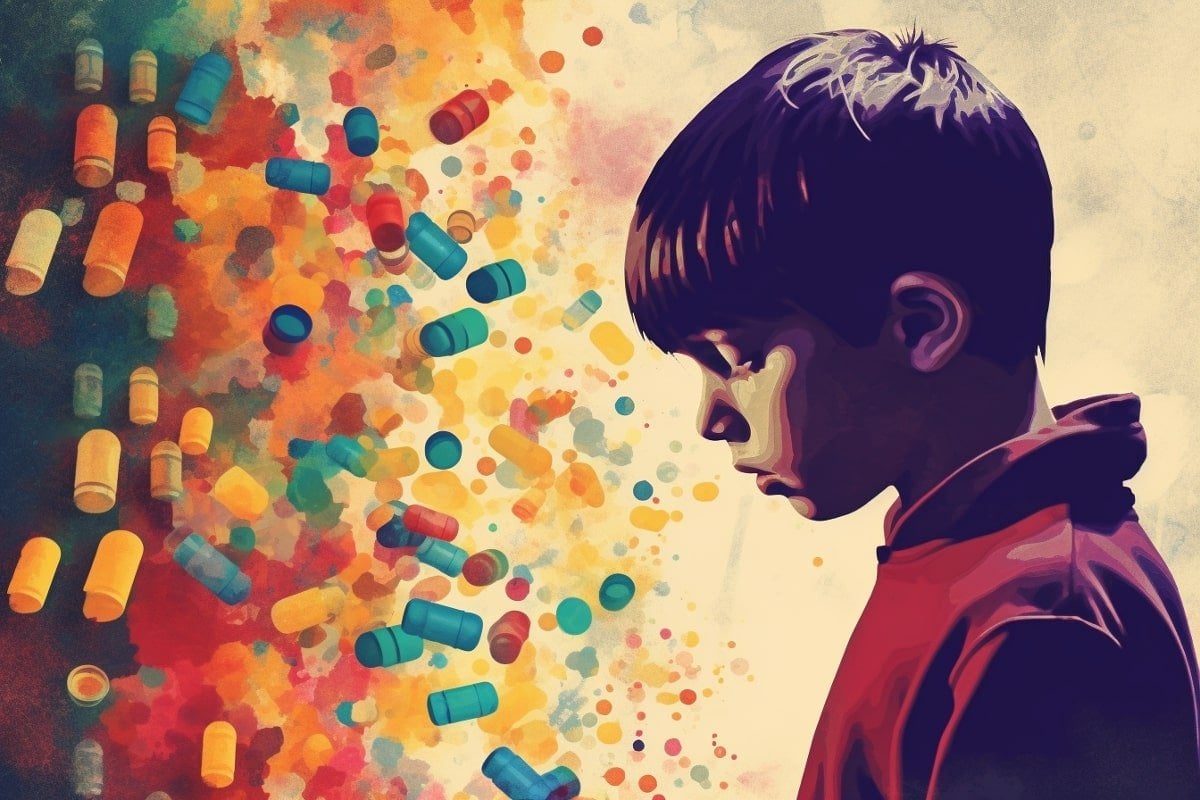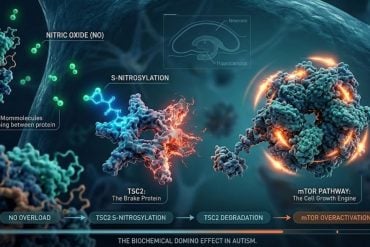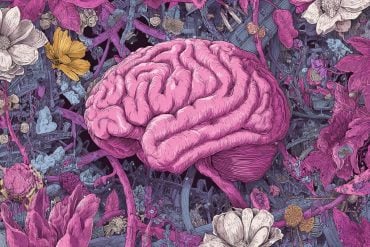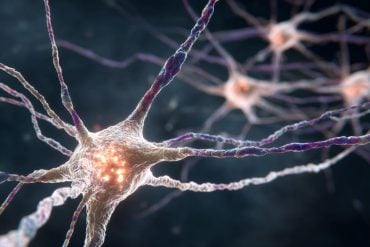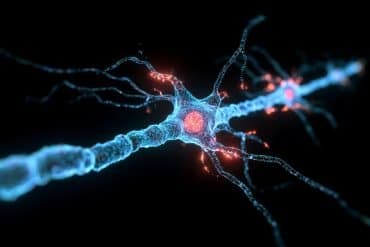Summary: Researchers discovered an oxytocin deficiency in patients with a rare vasopressin deficiency, a pituitary gland disease. This deficiency could potentially explain symptoms such as anxiety and social interaction difficulties that persist despite treatment.
The findings suggest that disorders impacting vasopressin production may concurrently affect oxytocin production due to their close anatomical proximity. This breakthrough could pave the way for new therapeutic approaches, particularly for conditions like autism that are suspected to involve oxytocin deficits.
Key Facts:
- Vasopressin and oxytocin are structurally similar hormones produced in the same area of the brain.
- Researchers have discovered an oxytocin deficiency in patients with a rare vasopressin deficiency, marking the first time a clinically relevant oxytocin deficiency has been identified.
- This discovery opens up potential new therapeutic approaches for conditions like autism that are suspected to be linked to oxytocin deficits.
Source: University of Basel
The hormone oxytocin is important for social interaction and to control emotions. A deficiency of this hormone has previously been assumed in various diseases such as autism, but has never been proven.
Now, for the first time, researchers from the University of Basel and the University Hospital of Basel have succeeded in demonstrating a deficiency of oxytocin in patients with a deficiency of vasopressin caused by a disease of the pituitary gland.
This finding could be key to developing new therapeutic approaches.
The hormones oxytocin and vasopressin are produced in the same area of the brain and are also very similar in structure. Patients with a rare deficiency of vasopressin cannot concentrate their urine and lose liters of water as a result. In order to compensate for this loss, they are obliged to drink up to 10 liters or more per day.
With a nasal spray or a tablet containing synthetically produced vasopressin, these symptoms can usually be treated without any problems.
However, even with this treatment, many patients report anxiety, have trouble with social interactions or demonstrate impaired emotional awareness.
These symptoms could be due to a deficiency of oxytocin, also known as the “bonding hormone”.
“Because the production of the two hormones is so close anatomically, disorders that cause vasopressin deficiency could also affect the neurons that produce oxytocin,” explains Dr. Cihan Atila, endocrinologist and lead author of a study that has now been published in the journal Lancet Diabetes and Endocrinology.
Oxytocin boosters only work on the healthy
Oxytocin is, however, difficult to measure and a “stimulation test” is needed to produce a reliable result. This test stimulates oxytocin secretion, i.e. the release of the hormone in the body. MDMA (3,4-methylenedioxy-N-methamphetamine), better known as ecstasy, is one such stimulant substance.
Researchers at the University of Basel and the University Hospital of Basel, led by Professor Mirjam Christ-Crain, have now shown that oxytocin levels are 8.5 times higher in healthy individuals after a single dose of MDMA, while they remain unchanged in those with vasopressin deficiency. This provides strong evidence that their production of oxytocin is also impaired.
As expected, the increase in oxytocin in the healthy individuals after a dose of MDMA caused pro-social behavior and an increase in empathy, combined with a reduction in anxiety symptoms. The patients with vasopressin deficiency, on the other hand, showed no changes in these areas.
“Oxytocin deficiency in people with vasopressin deficiency would at least partially explain this finding,” says the endocrinologist Atila.
Therapy with oxytocin?
“These results therefore prove for the first time that a clinically relevant oxytocin deficiency actually exists. This finding opens up new therapeutic possibilities and could also be interesting for other diseases such as autism,” says Mirjam Christ-Crain, study leader and deputy head of endocrinology at the University Hospital.
In addition, the results contribute to a deeper understanding of oxytocin as a key hormone for socio-emotional effects.
The same researchers at the Department of Clinical Research are currently planning a large study to investigate whether treatment with oxytocin can improve the psychological symptoms in patients with vasopressin deficiency.
About this neuroscience and autism research news
Author: Noëmi Kern
Source: University of Basel
Contact: Noëmi Kern – University of Basel
Image: The image is credited to Neuroscience News
Original Research: The findings will appear in Lancet Diabetes and Endocrinology


